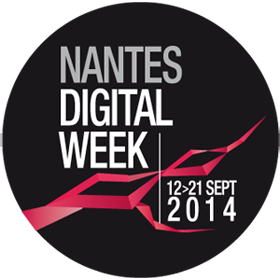AREA CHAIRS

DATA
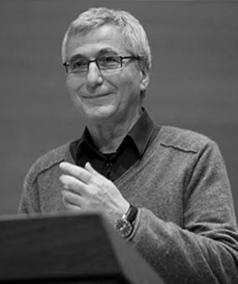
Serge ABITEBOUL
INRIA
& ENS Cachan

DIGITAL HUMANITIES

Jeffrey T. SCHNAPP
Director of MetaLAB,
Harvard University

THE COMMONS
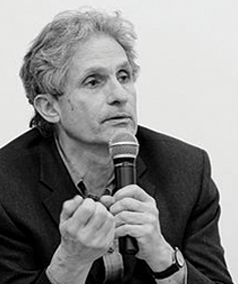
Philippe AIGRAIN
La Quadrature du Net,
Sopinspace, France

SMART CITIES

Stéphane ROCHE
Université Laval,
Canada

DIGITAL LITERATURE
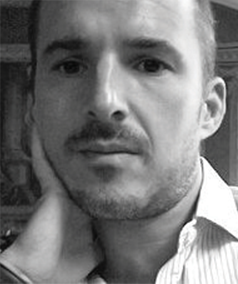
Alexandre GEFEN
Université Paris-Sorbonne,
Paris 4, France

SOCIAL WEB
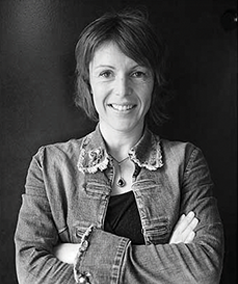
Anne-Marie KERMARREC
INRIA Rennes,
France

HUMAN-ROBOT
INTERACTION

Yuichiro ANZAI
Japan Society for the Promotion
of Science, Japan

DIGITAL LITERACY

Gérard BERRY
French Academy of Sciences,
French Academy of Technologies
and Academia Europaea

DIGITAL ART

Ryohei Nakatsu
National University
of Singapore

E-LEARNING
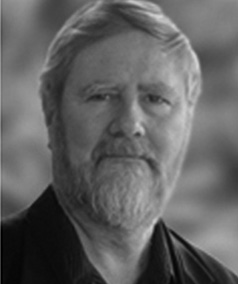
Rory McGreal
Athabasca University,
Canada

SECURITY, PRIVACY
& DIGITAL IDENTITY

Pascal Van Hentenryck
Australian National University,
Australia
Serge ABITEBOUL (INRIA & ENS Cachan)
Serge Abiteboul is a computer scientist working in the areas of data management, database theory, and finite model theory. He received his PhD from the University of Southern California. He is currently a senior researcher at the Institut national de recherche en informatique et en automatique (INRIA), the French national research institute focusing on computer science and related areas, and a professor at the Collège de France. He is known for his many contributions in the areas of finite model theory, database theory, and database systems. Member of Conseil National du Numérique (since 2013), he is the president of Conseil Scientifique de la Société Informatique de France.
Jeffrey T. SCHNAPP (Director of MetaLAB Harvard, Harvard University, Berkman, Center for Internet & Society)
Before moving to Harvard in 2011, Jeffrey T. Schnapp occupied the Pierotti Chair of Italian Studies at Stanford, where he founded and led the Stanford Humanities Lab in 1999. A cultural historian with research interests extending from antiquity to the present, his most recent books are The Electric Information Age Book, Modernitalia, and Digital Humanities. Faculty co-director of the Berkman Center for Internet and Society, he is Professor of Romance Languages & Literature and also on the teaching faculty in the Department of Architecture at Harvard’s Graduate School of Design. He is the faculty director of metaLAB@Harvard.
Philippe AIGRAIN (La Quadrature du Net, Sopinspace, France)
Philippe Aigrain is a passionate advocate of the right to share digital works and a promoter of new policies for the internet age. He is also CEO of Sopinspace, Society for Public Information Spaces, which develops free software and provides services for democratic processes and collaborative work over the Internet. He is also the cofounder of the La Quadrature du Net group.
Stéphane ROCHE (Université Laval, Canada)
Stéphane Roche is a French engineer and geographer. He is full professor at the University Laval, Quebec (Canada) where he teaches sciences of the geographical information. His research focuses on the interactions between technological innovation and cultural and social development, from the standpoint of spatial dimension. He particularly focus on the role of social geo-localization, open data and crowdsourcing in the development of new forms of digital spatiality and urban intelligence. He fully participates in the development of a living laboratory (Living Lab Circle) centered on smart cities and civil participation.
Alexandre GEFEN (Université Paris-Sorbonne, Paris 4, France)
Alexandre Gefen is a French critic and a academic. His research deals with literary theory, in particular applied to French contemporary literature. Publisher of Marcel Schwob’s work, he has contributed to the study of biofiction or bibliographic fiction. In 1999, he created Fantasized website, known as a reference website for research, as well as the university Paris Sorbonne-Paris IV‘s digital publishing platform, named CEPM. Alexandre Gefen is one of the most dynamic French specialists in the field of digital humanities (knowledge dissemination, networks and collaborative scientific tools, digital publishing, TEI digitalization).
Anne-Marie KERMARREC (INRIA Rennes, France)
Anne-Marie Kermarrec is a research director at INRIA Rennes in France where she leads the group ASAP (As Scalable As Possible) focusing on large scale distributed dynamic systems. She was with Microsoft Research in Cambridge (UK) from 2000 to 2004 and postdoc researcher at Vrije Universiteit in Amsterdam in 1997. She’s the principal investigator of the ERC Starting Grant Gossple (2008–2013), associate editor of IEEE Internet computing and the chair of the ACM Software System Award. In 2011, she has been awarded the Montpetit Award from the French Academy of Science.
Yuichiro ANZAI (Japan Society for the Promotion of Science, Japan)
Yuichiro Anzai has worked on cognitive and computer sciences for more than thirty-five years. He started research on human cognitive processes and machine learning in mid 1970’s, and spent 1976-78 and 1981-82 at Carnegie-Mellon University as a post-doc and a visiting assistant professor, respectively. After coming back to his country, he has kept working on learning and problem solving as well as doing extensive research on human-robot interaction since 1991. He is the President of the Japan Society for the Promotion of Science. Anzai has received many awards, including Medal with Purple Ribbon from Japanese government for his academic contribution to informatics, Commandeur de l’Ordre des Palmes Académiques from French government for his contribution to Japan-France academic collaboration.
Gérard BERRY (French Academy of Sciences, French Academy of Technologies and Academia Europaea)
Gérard Berry is a French computer scientist, member of French Academy of Sciences, French Academy of Technologies and Academia Europaea. He was the Chief Scientist Officer of Esterel Technologies from 2000 to 2009. He held the 2007-2008 yearly Liliane Bettencourt CHAIR of Technological Innovation at the Collège de France. He is currently Director of Research at INRIA and is holding the 2009-2010 yearly Informatics and Digital Sciences chair at the Collège de France.
Ryohei NAKATSU (National University of Singapore)
Ryohei Nakatsu is Professor at the National University of Singapore and
Director of the Interactive & Digital Media Institute (IDMI) till 2011. He
received his PhD from Kyoto University and mainly worked on speech
recognition technology. He joined the Advanced Telecommunications Research
Institute (ATR) in 1994, as the President of ATR Media Integration &
Communications Research Laboratories. From the spring of 2002, he has been
a Professor at School of Science and Technology, Kwansei Gakuin
University. His research interests include emotion extraction from speech
and facial images, emotion recognition, nonverbal communications, and
integration of multimodalities in communications. He is a member of the
IEEE, the Institute of Electronics, Information and Communication
Engineers Japan (IEICE-J), as well as the Acoustical Society of Japan.
Rory McGreal (Athabasca University, Canada)
Rory McGreal is a Professor at Athabasca University - Canada’s Open
University where he holds the UNESCO/Commonwealth of Learning Chair in
Open Educational Resources. He is the director of the Technology Enhanced
Knowledge Research Institute (TEKRI) and co-editor of the International
Review of Research in Open and Distance Learning (IRRODL), and founder of
the OER Knowledge Cloud. His research interests include the use of Open
Educational Resources, and standards in technology assisted learning,
particularly in the development and application of learning objects. He is
also researching how these would be applied and formatted on mobile
devices for M-learning.
P. Van Hentenryck (Vice-Chancellor Strategic Chair in Data-Intensive Computing, Australia)
Pascal Van Hentenryck holds the Vice-Chancellor Strategic Chair in Data-Intensive Computing at the Australian National University and is the leader of the Optimization Research Group at NICTA, whose focus is on infrastructures, transportation, and logistics, energy systems, and environmental and societal resilience. He was formerly Professor at Brown University. Van Hentenryck is the author of five books and the designer of many influential optimisation systems that are in daily academic and industrial use.












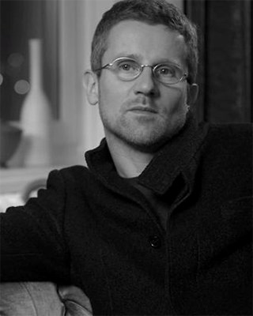


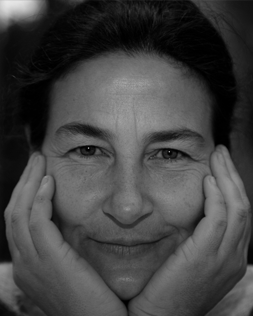

































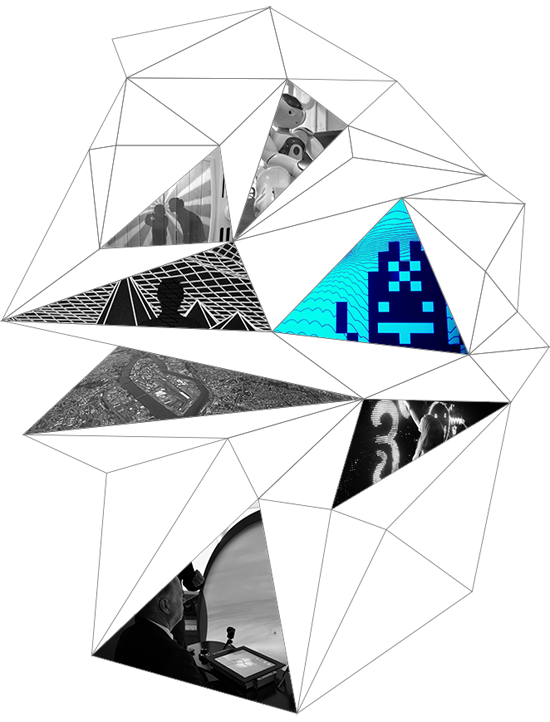
 Digital Humanities
Digital Humanities Green digital economy
Green digital economy Human-Robot Interaction
Human-Robot Interaction Human-Computer Interaction
Human-Computer Interaction






